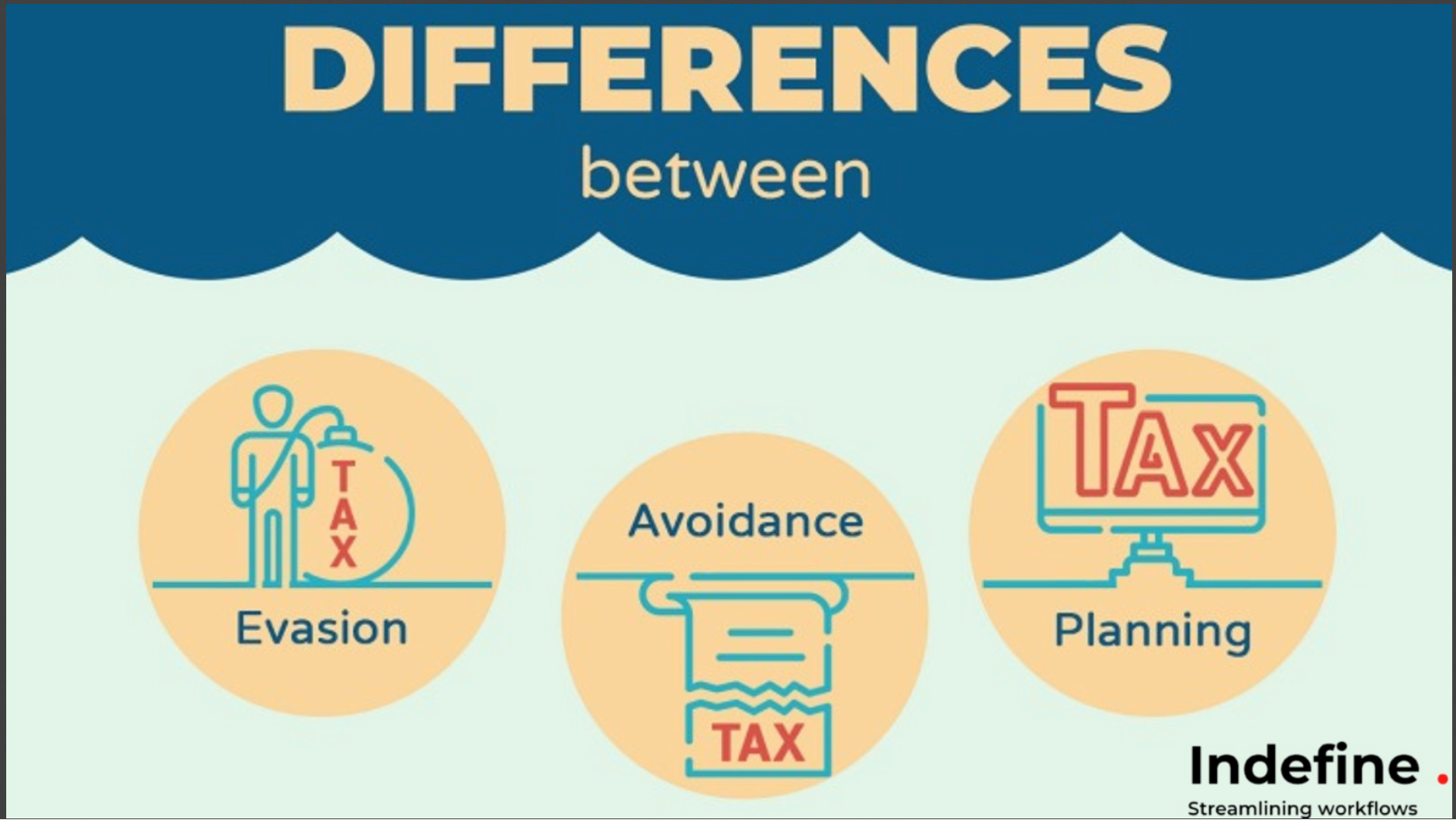Tax Avoidance is simply the legal methods used to minimize the amount of tax owed by an individual or a business. In other words, it consists in using means within four corners of the tax law to minimize one’s tax burden. Although a legal method, it is not advisable as it ultimately aims to reduce the amount of tax that is payable by one for their own personal advantage, which is unfair exploitation of law. Tax avoidance is taking unfair advantage of the lacunae in the tax law by finding ways to avoid the payment of taxes. Tax avoidance is usually done by adjusting the accounts so that there will be no violation of tax laws or by finding loopholes in the law. Though lawful, it could be categorized as an offense in some cases.
For example, companies channel their funds through offshore branches to avoid paying taxes in their home country.
Tax Evasion on the other hand is an illegal and deliberate failure to pay tax. It is the act of illegally paying less in taxes than the Law permits, thereby committing fraud in filing and paying of tax. Such fraudulent means are used with the motive of showing lesser profits to minimize one’s tax burden. Certain noted illegal practices are concealing income or relevant documents, making false statements, overstatement of the tax credit, not maintaining complete records of the transactions or accounting personal expenses as business expenses.
Tax planning is a comprehensive evaluation of one’s financial situation using current known and estimated future variables and drawing out a feasible plan. Tax planning, like tax evasion/avoidance, is also done to reduce tax liability. However, it involves legal planning regarding investments, expenses, etc., to avail various exemptions and deductions provided under the tax laws.
For example, Section 80C allows a deduction of up to INR 1,50,000 if specified investments are made. The most popular ways of saving tax through planning are investing in Life insurance policies, PPF accounts, National Saving certificates, Sukanya Samriddhi Scheme, term deposits, Provident Funds, etc.
Tax planning involves planning the financial affairs to entitle the taxpayer to the benefits of deductions, exemptions, concessions, and rebates. Tax planning is a genuine approach to applying all the provisions within the tax law framework to the taxpayer’s benefit.
As your earning increases It’s essential to stay informed about tax laws and regulations, seek professional advice when needed, and regularly review and adjust your tax planning strategies to ensure they remain aligned with your financial objectives.
#EthicalTaxPlanning #TaxCompliance #ResponsibleFinance #LegalTaxStrategies #TransparentTaxation #StartUpJourney #InnovationStories #FinancialDiscipline #TechInnovation #wegrowasateam
Visit us at: www.indefine.in
To join us email to: info@indefine.in






